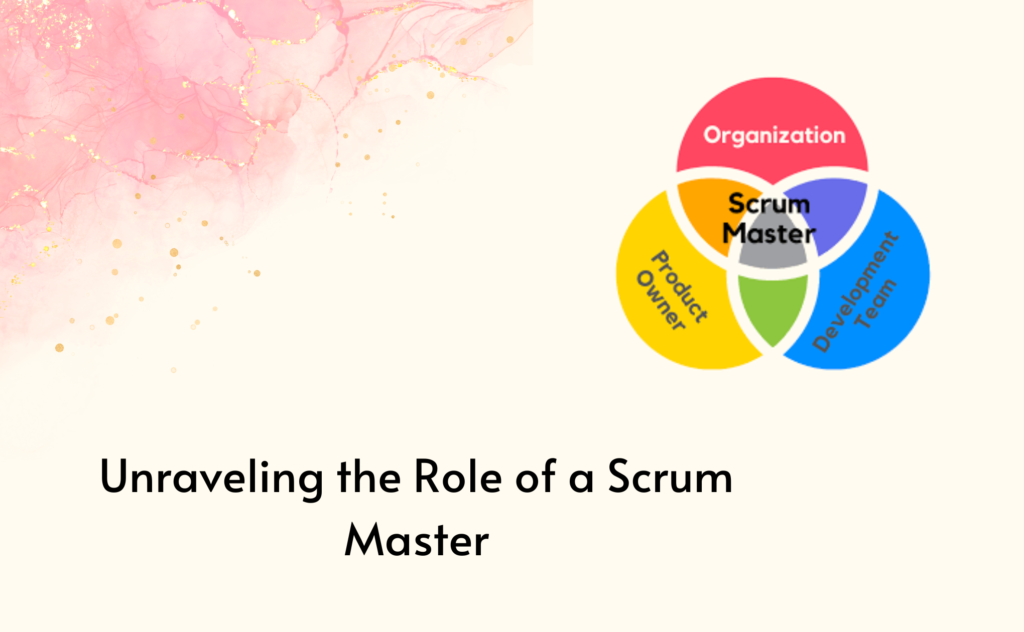Understanding the Basics of Scrum: A Comprehensive Guide

In the world of agile project management, Scrum has emerged as a powerful framework that promotes collaboration, adaptability, and the delivery of value-driven outcomes. Central to the success of any Scrum team is the Scrum Master—a role that carries significant responsibilities and plays a pivotal part in ensuring the framework’s effectiveness. In this comprehensive guide, we’ll delve into the fundamentals of Scrum, what a Scrum Master is, what they do, their responsibilities, qualifications, and much more.
What Is a Scrum Master?
A Scrum Master is a key figure in the Scrum framework, tasked with facilitating the Scrum process and enabling the team to achieve their objectives. They are not managers or supervisors but rather servant-leaders who support the team and ensure they adhere to Scrum principles and practices.
What Does a Scrum Master Do?
Scrum Master Responsibilities:
- Facilitating Scrum Events: Scrum Masters lead essential events like Sprint Planning, Daily Stand-ups, Sprint Review, and Sprint Retrospective, ensuring they are conducted effectively and time-bound.
- Removing Obstacles: They identify and remove impediments that hinder the team’s progress, allowing them to work smoothly.
- Coaching and Mentoring: Scrum Masters coach team members, Product Owners, and stakeholders on Scrum practices, fostering a culture of self-organization and continuous improvement.
- Protecting the Team: They act as shields against external interruptions and distractions, preserving the team’s focus and productivity.
Scrum Master Roles:
- Servant Leader: Scrum Masters serve the team’s needs and facilitate their work, ensuring they have what they need to succeed.
- Facilitator: They facilitate communication and collaboration among team members, Product Owners, and stakeholders.
- Change Agent: Scrum Masters drive and advocate for improvements within the organization, helping teams embrace agile values and principles.
Scrum Master Job Description Qualifications
To become an effective Scrum Master, individuals typically require:
- Certification: Many Scrum Masters hold certifications like Certified ScrumMaster (CSM) or Professional Scrum Master (PSM).
- Experience: Practical experience in agile environments and Scrum practices is valuable.
- Soft Skills: Strong communication, conflict resolution, and coaching skills are essential.
- Knowledge: A deep understanding of Scrum principles and the ability to apply them.
What Is a Typical Scrum Master Salary?
A Scrum Master’s salary varies based on factors such as location, experience, and the organization’s size. In the United States, for instance, the average Scrum Master salary can range from $80,000 to $120,000 annually.
How to Get a Scrum Master Certification?
To become a certified Scrum Master, follow these steps:
- Attend a certified Scrum Master training course.
- Participate actively in the training and gain insights from certified trainers.
- Pass the certification exam, typically consisting of multiple-choice questions.
Why Do Scrum Teams Need a Scrum Master?
Scrum Masters play a crucial role in maintaining a productive and collaborative environment. They help teams adhere to Scrum principles, address issues promptly, and ensure that the team stays focused on delivering value to customers.
Differences Between a Scrum Master and Product Manager
While both roles are essential in agile development, a Scrum Master focuses on process facilitation and team support, whereas a Product Manager is responsible for defining the product vision, strategy, and roadmap.
Differences Between a Scrum Master and Project Manager
A Scrum Master concentrates on facilitating Scrum processes and team dynamics, while a Project Manager traditionally manages project scope, timelines, and resources.
Scrum Master vs. Product Owner
A Scrum Master serves the team and helps them follow Scrum practices, while a Product Owner represents the customer’s interests, prioritizes the product backlog, and defines requirements.
Top Qualities of a Successful Scrum Master
Successful Scrum Masters often exhibit qualities such as empathy, adaptability, strong communication skills, and a commitment to continuous improvement.
Conclusion
In the world of agile project management, the Scrum Master is a linchpin, ensuring that Scrum teams operate effectively, efficiently, and in alignment with agile principles. This comprehensive guide provides insights into the Scrum Master role, responsibilities, qualifications, and why their presence is essential for thriving Scrum teams. Whether you’re looking to become a Scrum Master or better understand their role, this guide equips you with the knowledge you need to succeed in the world of Scrum.

Leave a Reply